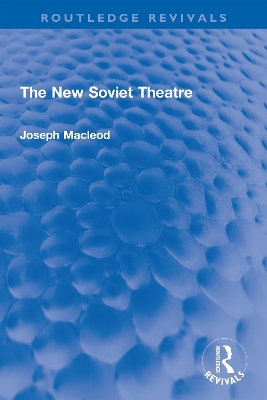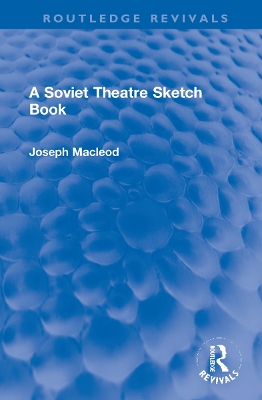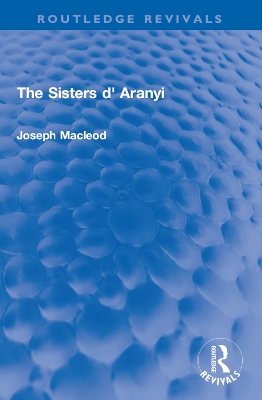Routledge Revivals
3 total works
First Published in 1943, The New Soviet Theatre presents Joseph Macleod’s take on the development and rapid changes in the Soviet Theatre since late 1930s. Through scattered articles and reports, books and bulletins, and his own visits to the USSR, Macleod showcases what we know as ‘Socialist Realism’. He brings themes like the shortcomings of the old theatre; the audience beyond the Caucasus; new socialist audiences; Alexey Popov of the Central Theatre of the Red Army; new writers and new plays; and popularity of Shakespeare both in the central theatres and in remoter and unexpected places. Written graphically but founded on scholarship this book will be an essential read for scholars and researchers of history of theatre, European theatre, theatre and performance studies.
First Published in 1951, A Soviet Theatre Sketch Book presents Joseph Macleod’s take on Russian Theatre in a semi-fictional way to show the effect of the productions upon different audiences. By using his pen as an artist uses his pencil, he gives, for the first time, an account of theatre audiences as composed of individual human beings and is able to paint the scenes vividly without neglecting the technical methods of the Soviet stage. By supple use of the sketch- book form, theatres, theatre-schools, actors, and actresses including some no longer appearing are painted into an all-over view of Russian and Ukrainian post-war life. In this book the author writes less immediately about the Soviet Union and does not depend on topicality or stop press news. Joseph Macleod and his wife visited the Soviet Union as the guests of the Russian and Ukrainian Societies for Cultural Relations with Foreign Countries. This book will be of interest to scholars and researchers of theatre, history of theatre, and performance studies.
First published in 1969, The Sisters d' Aranyi traces the careers, personalities and musical development of Jelly d' Aranyi and Adila Fachiri, outstanding violinists in Britain and Hungarian great nieces of Josef Joachim, with insight and a wealth of anecdote and description. The book contains fresh lights on figures such as Joachim himself, Elgar, Ravel and Vaughan Williams, Casals, Suggia, and Myra Hess, Aldous Huxley, Einstein and Schweitzer, Balfour, Asquith and Neville Chamberlain. There are illuminating comments on music from Bach to the present day, and also a chapter on the mysterious affair of the Imprisoned Schumann Violin Concerto, and how it was found and liberated. These two consummate musicians were, however, part of a movement towards greater sincerity in music- a tendency not yet sufficiently recorded by musicologists. To set them in their time, this biography contains a most readable history of music in Britain with some original observations on the nature of music itself in performance. This book is an essential read for students of music, music history, literature, performance studies, for violin players and also for general music lovers.


